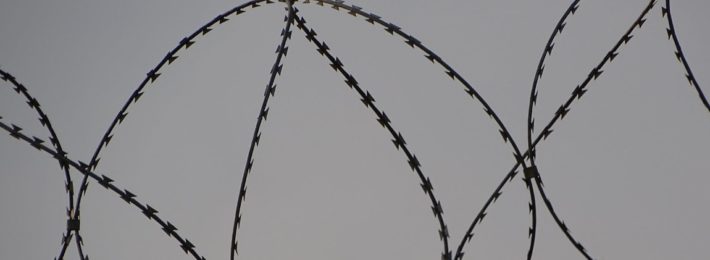Former Navy Contractor Gets Six Months Jail Time for Lying on Security Clearance Application

On the Questionnaire for National Security Positions (SF-86) in the section labeled “Penalties for Inaccurate or False Statements” it states:
The U.S. Criminal Code (title 18, section 1001) provides that knowingly falsifying or concealing a material fact is a felony which may result in fines and/or up to five (5) years imprisonment. In addition, Federal agencies generally fire, do not grant a security clearance, or disqualify individuals who have materially and deliberately falsified these forms, and this remains a part of the permanent record for future placements. Your prospects of placement or security clearance are better if you answer all questions truthfully and completely. You will have adequate opportunity to explain any information you provide on this form and to make your comments part of the record.
Most of the time law enforcement agencies don’t bother expending the time and resources in preferring charges in federal court for lying on a security clearance application. However, when it also involves lying to the Federal Bureau of Investigation (FBI) then things are a little more serious. A former Navy contractor found this out when he was found guilty on five counts of providing false information to federal authorities. Here is a summary of the case:
This contractor, Fred Arena, worked at the Navy Yard in Philadelphia and submitted an SF-86 in January 2019 to get a security clearance for his job. He failed to disclose his association with Vanguard America (a supremacist group) on the form. He also didn’t disclose required information about several financial delinquencies. During this same time Arena came to the attention of the FBI, who were monitoring websites and social media sites advocating hate and bias-motivated violence. Arena was a member and actively posted on several of the sites. Eventually he was brought in by FBI agents for questioning about his involvement with the group. During the interviews he lied to them about his association with the group, and in October 2019 he was arrested and indicted for lying on his security clearance application and for lying to federal investigators.
Arena plead guilty to the charges and was sentenced to six months in prison and two years of supervised release afterwards. The prosecuting U.S. Attorney in this case said “Lying on federal security clearance forms and to government agents are very serious matters”. Hopefully this will make other security clearance applicants think before trying the same thing. Under the National Security Adjudicative Guidelines these issues would have fallen under Allegiance, Financial Considerations, and Personal Conduct.



what an idiot. hilarious
Well . . . He was unlikely to be cleared if he told the truth so he rolled the dice. However, I suspect that he would NOT have been charged for lying on his SF-86 if he had not compounded the issue by lying to investigators in a separate investigation.
:Lying on his SF-86 was an easily proven additional charge. I have some political comments about the sentence but I will keep them to myself.
Same here…
LOL Ed, I could have fun with this topic, myself: " I have some political comments about the sentence but I will keep them to myself." Boy am I tempted to be political! But, in all seriousness, he did roll the dice, he should have disclosed it and should have been honest, honesty is EXTREMELY important.
Good. Those kind of people don’t belong in US government. They need to be reduced back to the fringes of society whence they came.
If you liked that “lying on your Sf-86 story.”…this one is great too.